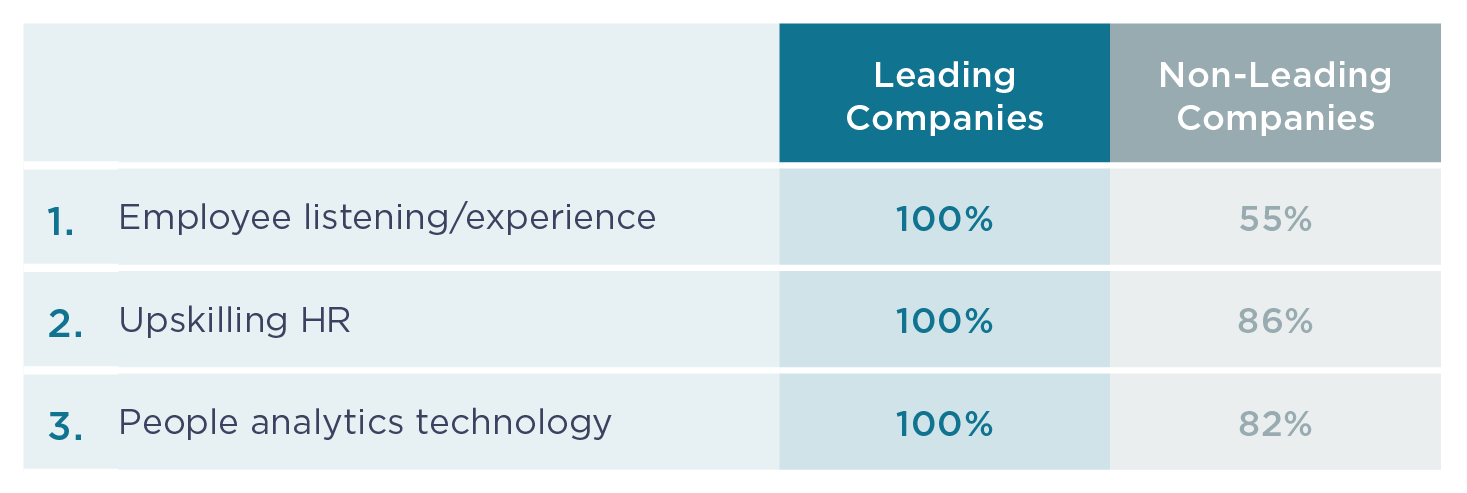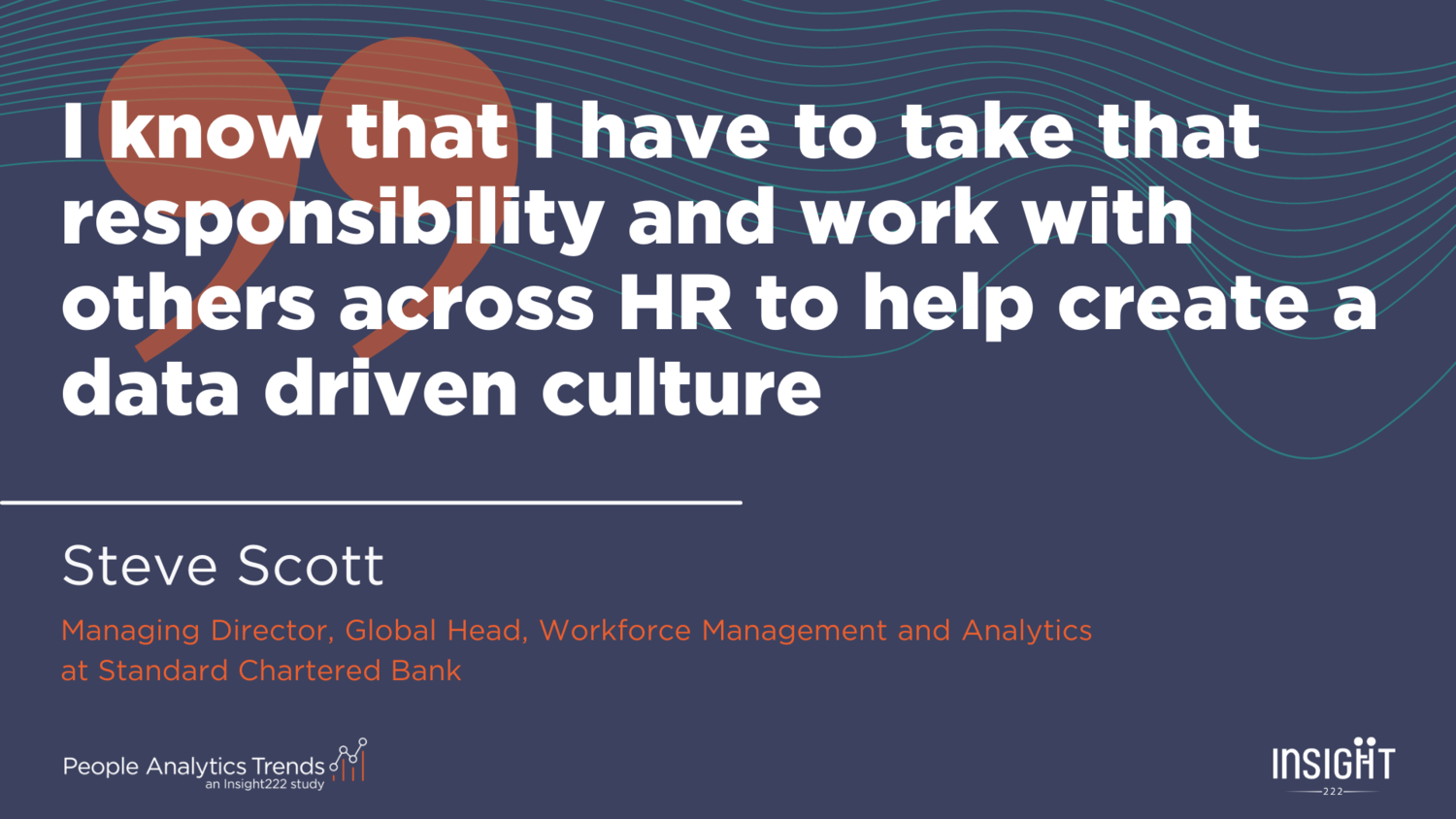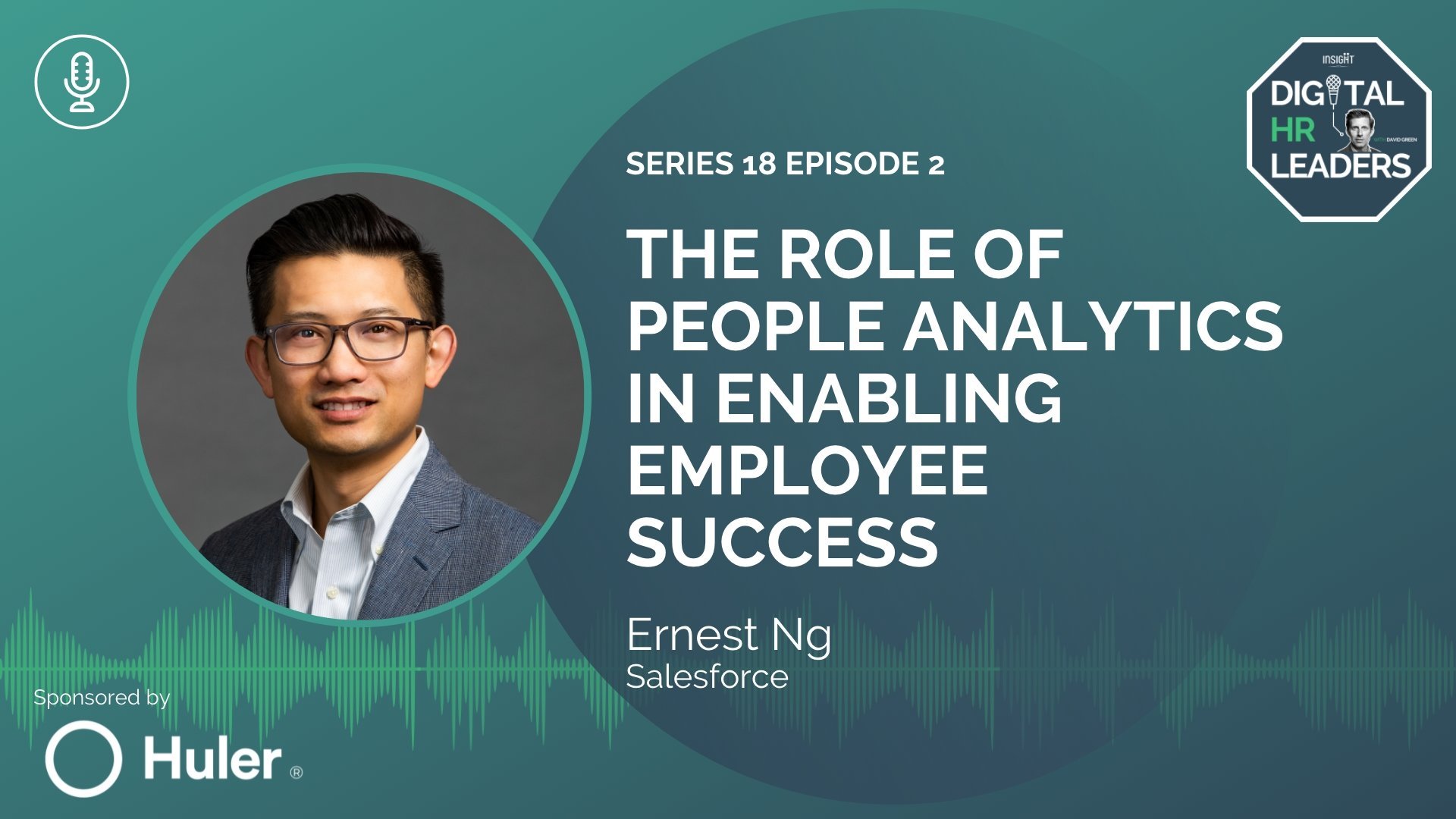Enabling People Analytics to Drive Value & Scaling HR Success
In recent years, people analytics as a function has undoubtedly stamped its mark on the business world. Allowing organisations to understand better and predict their human resources has proven itself as a critical source of business value creation in both small and large businesses alike.
With the power of people analytics, businesses can benefit from enhanced employee experience, innovation, workforce planning, and employee productivity. This is why we are seeing a growing trend of organisations using these data-driven HR insights to drive their success.
Figure 5. Areas of responsibility for people analytics teams (Source: Insight222 People Analytics Trends Report 2022)
But, as with any source of business value creation, there will be challenges in scaling it up and getting the most out of it. Many companies must invest more in building a solid data infrastructure or creating a culture supporting data-driven decisions.
But as our Insight222 People Analytics Trend 2022 Report found, leading companies in people analytics are successful because they scale people analytics across the organisation.
To ensure that you are scaling your organisation for success and creating a data-driven culture that drives continuous improvement, here are some tips to bear in mind:
Building a Strong Data Infrastructure
First, invest in building a solid data infrastructure. In an ideal world where unicorns roam free, data should be readily available and easily accessible. But alas, this is not always the case.
On the Digital HR Leaders podcast, Caroline O'Reilly, GM of People Analytics at Workday, shares that one of the most common challenges that she sees businesses face is:
"There's so much data collection in organisations, and it's fragmented and it's in all different parts of the organisation with all different owners. That means that it's really hard for people to separate that signal from the noise. And business leaders are finding it slow as well to get their hands on the data that they need to make decisions, especially when it's owned by different parts of the organisation."
This is where people data goes wrong. To have an HR analytics function that can scale successfully, you need to integrate all your data sources, invest in data quality, have data warehouses and make the necessary investments in data management platforms that can help you access and analyse all the data points collected into one unified system.
You also want to ensure that you have the right data governance and processes for collecting, storing, and cleaning data before attempting to scale HR data analytics yourself.
And then, once you have the data infrastructure in place, invest in the right business intelligence technologies to make data analysis help you draw insights from it. This can include using AI-driven solutions for deeper insights (such as prescriptive analytics) or leveraging organisational network analysis (ONA) to identify hidden connections between people and teams.
Developing a Data-Driven Culture
Another essential aspect of scaling people analytics is ensuring that you have the right culture to embed into your business's everyday operations and decision-making processes. This means creating an environment where data informs decision-making and drives innovation and continuous improvement.
To create a data-driven HR culture:
Start by setting the right expectations across the organisation.
Establish clear objectives for using data and analytics to drive decision-making.
Train and empower your HR team to take ownership of people analytics initiatives and be responsible for driving change and innovation.
As a People Analytics Leader, this is a key responsibility - helping to shape a data-driven culture and ensure that it is embraced across the organisation. To do this, you need to democratise access to data. Make sure that employees - the people who need the data have easy access to insights - and make it part of their everyday workflows.
The Power of Productisation in Scaling People Analytics and Creating Business Value
One way to achieve this is through the productisation of people analytics. And as Ernest Ng, Vice President of Global Employee Success Strategy and People Analytics at Salesforce, explains on the Digital HR Leaders Podcast, productisation is about:
"Ensuring that if we are doing an analysis, we are making it into a product of some sort, meaning it is scalable, it is repeatable, it is something that our data infrastructure supports so that when a new leader comes in, it is just a push of a button in order to get you your cut versus having to do some special thing all the time."
In short, productisation is about ensuring people analytics is baked into your company or organisation's core and not just an afterthought. And through that, you will be able to scale people analytics and create business value.
Creating a Feedback Loop
The final piece of the puzzle is creating a continuous feedback loop using company data to drive business value. This is where data-driven HR teams can use insights from their data for continuous improvement and measuring its impact on the business.
This feedback loop is essential for effectively scaling people analytics, as it gives you a way to measure progress and ensure that your initiatives have the desired impact. You will also be able to identify areas where further improvements can be made so that you can refine ongoing process or adjust your strategies accordingly.
For example, you may use the feedback loop to measure how well your productised people analytics solutions are performing. This, in turn, will help you identify any areas that need improvement and make necessary adjustments.
Enabling People Analytics to Drive Value
So, if scaling and creating business value is one of your goals this year, remember to focus on the fundamentals first - improving your data infrastructure, your data literacy developing a data-driven culture, productising insights, and building a feedback loop.
By following these steps, you can ensure that your people analytics initiatives are successful and drive real value for your organisation. With the right combination of data, technology, and expertise, you can get the most out of your people analytics investments and unlock greater potential for innovation, business intelligence, and continuous improvement.
ABOUT THE AUTHORS
Nerea Gonzàlez
Nerea is an experienced consultant having worked in professional services for PwC and Aon for over five years, prior to joining Insight222 in 2022. She has consulted with global clients in the Manufacturing, Retail, Consumer Goods, Pharmaceutical and Financial Services sectors, amongst others, and in a number of functional areas such as human resources, finance and M&A. Nerea was dual educated in Spain and UK, is Spanish by nationality and also has lived in Ireland for part of her education. She is a certified accountant (ACCA) too! Outside of work, Nerea enjoys skiing, wake boarding, water skiing, tennis, paddle and scuba diving for which she is PADI qualified.
Enable Your People Analytics Leader and Drive Business Success With Our Insight222 Consulting Service
The right partner can help you on this journey. That's why at Insight222, we have created our 'Enable' consulting services to support you in developing a successful people analytics program and empower your new People Analytics Leader. Through this process, we will help clear the path for the new leader by understanding the current state of your people analytics, identifying key stakeholders, and supporting them during their first 100 days.
Our experienced team of people analytics consultants can help you maximise your HR analytics initiatives and unlock greater business value. So, if you're ready to take your people analytics to the next level, contact us today.






